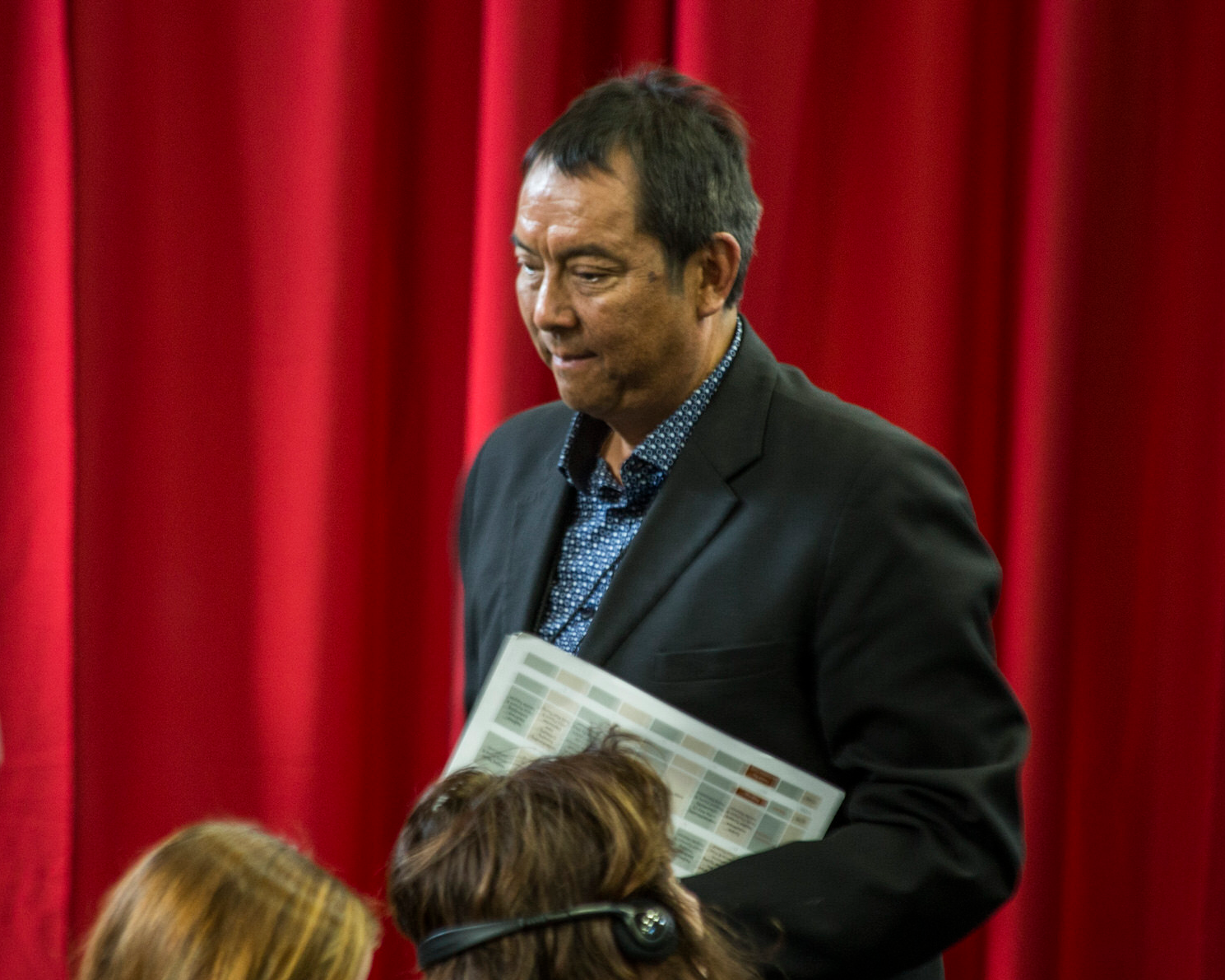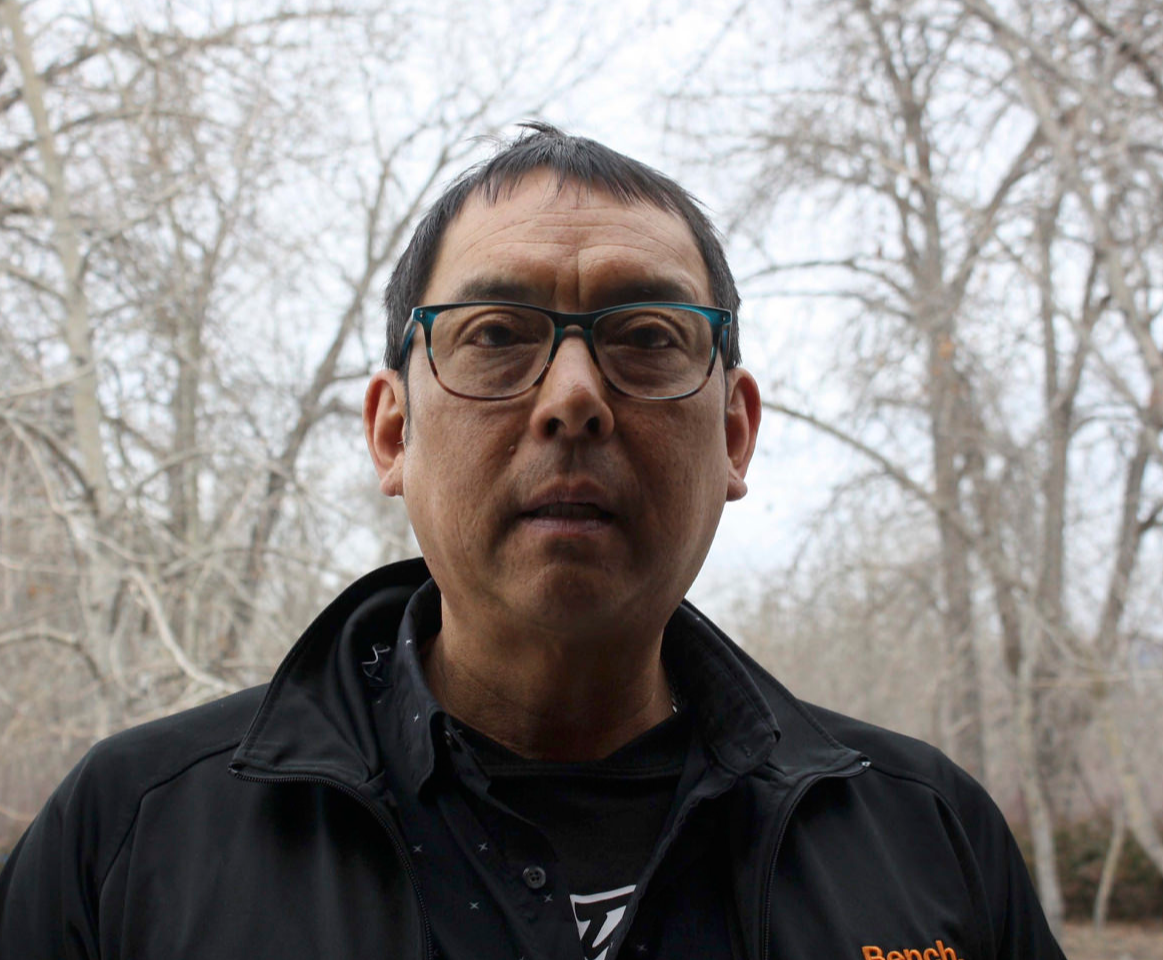 Greg Younging at the PC/Cp Gathering 2017 on
Greg Younging at the PC/Cp Gathering 2017 on
Lekwungen territory. Photo credit: Kirk Schwartz.
Q: Where do art practices come from?
A: Our Stories.
“We are all about stories, and stories are all we are.” (Harold Johnson)
Indigenous Peoples have the following categories of Traditional Stories.
- Animal Time Stories
- Creation Stories
- Animal and People Stories
- Ancient People Stories
- Prophecy Stories
Indigenous Peoples also have the following categories of contemporary stories:
- Colonization Stories
- Decolonization Stories
- Indigenization Stories
Traditional Stories are sacred and have Indigenous Laws attached to them. Some Traditional Stories are seasonal (some Cree Stories, for example, can only be told when there is a lot of snow on the ground). Traditional Stories can be clan or family owned. They can also be gendered, ceremonial, and/or require Storyteller training/apprenticeships. They are subject to interpretations, have longer and condensed versions, and are sources of Indigenous Teachings, Laws and Identity.
Some nations have their own specific categories of Traditional Stories. The Sylix, for example, have the following categories:
- world-before-humans captikʷɬ
- sacred text captikʷɬ
- coyote-traveling captikʷɬ
- people-were-living captikʷ
- people-were-traveling captikʷɬ
Colonization stories are about
- Population Depletion
- Displacement and Diaspora
- Confinement (Reserves and Incarceration)
- Extraction and Imposition (Indian Act, Residential Schools, 60s Scoop, Missing and Murdered Indigenous Women and Girls… Cultural and Language Loss).
De-colonization stories are about
- Political Organization (e.g. Idle No More)
- Indigenous Rights/Aboriginal Title, Protest (Oka, Kinder Morgan, Standing Rock,…)
- The Rejection of Colonial Law (e.g., the Indian Act)
Indigenization stories are about
- Cultural Rejuvenation
- Indigenous Laws
- Recognition of Traditional Territory
- Indigenizing the Academy and other colonial institutions
All of these types of stories inform and inspire the Indigenous traditional and contemporary arts in all of their manifestations. Unfortunately, the stories of people whose ancestry comes from a very small portion of the world have become dominant and privileged and imposed Indigenous peoples and other marginalized people through the process of colonization.

The many Primary Colours/Couleurs primaires communities are deeply saddened by the passing of Dr. Gregory Younging. He began his spirit journey on May 3, 2019. Greg is profoundly missed, but we are grateful for the knowledge that he shared so generously. Dr. Younging was posthumously recognized with the Association of Canadian Publishers President’s Award for his outstanding contributions to the Canadian publishing industry.
Gregory Younging was a member of Opsakwayak Cree Nation in Northern Manitoba. Holding a master of arts degree in Northern and Native studies from Carleton University, a master’s degree in Publishing from Simon Fraser University, and a PhD in Educational Studies from UBC, Younging devoted his career to righting history and elevating the cultural contributions of First Nations in Canada through his writing and teaching.
Gregory worked for the Royal Commission on Aboriginal Peoples, and the Truth and Reconciliation Commission. He served as managing editor of Theytus Books - the first Indigenous-owned publishing house in Canada from 1990 to 2004, before taking on the role of publisher in 2015. In 2007, he joined UBC Okanagan’s department of Community, Culture and Global Studies (CCGS) as an assistant professor, where he was key in the development of the Indigenous Studies program.